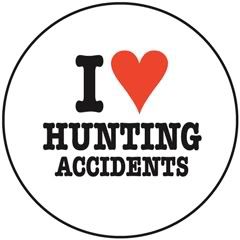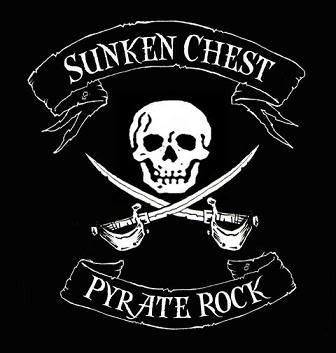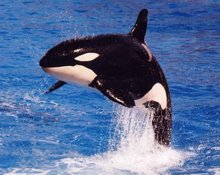| | A letter from Captain Paul Watson. A MUST READ!!!
Kategorie: Pets and Animals From: Captain Paul Watson
Date: Jun 6, 2007 8:02 PM
Shepherd and Sailors, Pirates and Prophets
by Captain Paul Watson
In the Spring of 1990, during a lecture at the University of California at Los Angeles I predicted that by the turn of the century, we would be in danger of losing 75% of the world's fisheries. The oceans were under siege by industrialized fishing operations both legal and illegal and unless the world's governments took international action, I predicted that fish populations worldwide would crash.
I was of course labeled a pessimist and a doom and gloom Cassandra.
But unfortunately like Cassandra, I was right. In fact it turns out I was optimistic. According to the Pew Foundation report on the State of the World's fisheries, over 90% of the world's large fish have been removed from the oceans and commercial fisheries have crashed worldwide.
The reason for the collapse has been a combination of mismanagement and corruption within international governmental fishery departments, industrial over-fishing, increasing demand from steadily rising human populations and just plain greed by fishing corporations.
Fishing operations are now moving into ever-remote areas. The Patagonia toothfish is being eradicated in the Southern Oceans. Newfoundland fishing vessels are heading into Arctic waters in pursuit of the once worthless turbot. Poachers are assaulting "protected" marine reserves around the globe in the hunt for shark fins, sea-cucumbers, and large fishes.
And with the decline of the fish, marine mammals and sea birds are being scapegoated for the losses, motivating angry fishermen to scream for blood and government subsidies to wipe out the non-human "competition" for fish.
As a result, the Canadians are engaged in a massive slaughter of seals on the Atlantic coast of their nation and clamoring for a seal lion kill on their Pacific Coast. The Namibians are killing some 60,000 seals each year. The Japanese are rounding up and slaughtering dolphins; fishermen in California are killing and maiming pelicans and cormorants; and the Norwegians, Icelanders, and the Japanese are steadily increasing their illegal whale kills.
In fact, in every coastal community the story is the same. Kill the seals, kill the birds, and kill the dolphins - kill anything that isn't human that eats fish to save the fish for us to exterminate.
Once again, humans are lashing out without understanding the problem and we are, like we have done so many times before, creating further problems because of our unique ability to combine astonishing ignorance with incredible arrogance.
Ironically, the diminishment of seals and other natural predators is directly contributing to a further decline in fish.
The reason for this is that marine mammals and birds eat fish and remove sick and weak species from the populations they prey upon. In the case of the harp seal, the seals remove species that prey upon cod and thus reduce predatory species impacting the cod. The fact is that the largest predators of fish are other fish. Seals, dolphins, pelicans and cormorants keep these populations in check and in balance.
Prior to modern global fishing, marine mammal and sea bird populations were much more populous than today by a very large margin. The seal population on the East coast of Canada alone was close to forty million only five hundred years ago. And there was no shortage of fish. The cod have been reduced to 1% of their original numbers in the last five hundred years by the human species.
Now the animals of the oceans must die for the sins of humanity. It is a disgrace and a shameful indictment of humanity.
Lets put this in perspective. The worldwide population of all species of seals is about 28 million. Yet the worldwide population of domestic housecats is estimated to be around 100 million.
The housecat population of the United States alone consumes 2.9 million pounds of fish each year.
More than 6 million "surplus" cats are systematically destroyed every year at a cost in excess of $45 million dollars. As seal conservationist Francois Hugo of South Africa puts it, "we are destroying our indigenous natural wildlife to feed an unchecked exotic domestic pet market."
It is also a tragedy that over 50% of all the fish taken from the sea are not even eaten by people. Most of it is rendered into animal feed for cattle, chickens, pigs, and most ironically for farm-raised salmon. It takes 30 to 50 fish caught from the ocean to raise and market a single farm raised salmon.
We must be insane to continue to pull the last of the fishes from the sea to feed domestic pets and livestock.
Most of these fish are the small fishes like the herring, and sand-eels. The very fish that provide the foundation of the food chain for the larger fish.
The North Sea sand-eel fishery alone has destroyed tens of thousands of puffins and this fishery is exclusively for the livestock feed trade.
If nations simply prohibited the taking of fish to feed livestock and pets, we would effectively cut the annual reduction of fish from our oceans by more than 50%.
But it won't happen because there is to much money to be made from selling these products and government bureaucrats and politicians do what they are told by the corporations that have the money and provide the jobs.
In our quest for territorial conquest we have anthropocentrized the planet and brought it into accordance with the unilateral laws of humankind. We have stolen the homes of a hundred million species and we have taken it all for ourselves. There is no spot too deep, too dry, too low, too wet, too high, too forsaken, for us not to invade, and no place we have not sought to develop for our profit and our pleasure.
We have long forgotten that humans without the animals and humans without the plants are humans without anything at all. It is the interdependence of all species - plant and animal - that allows us to participate in the mystery of life. Every extinction, every extirpation, every loss of habitat loosens our hold on the eco-reality of survival and brings us closer to the day of our own demise.
The state of our oceans is one of escalating diminishment.
My late friend Captain Jacques Cousteau sadly lamented just before he died that our oceans are dying in our lifetime.
All of you who have been or continue to be scuba divers, sailors, seaman, surfers, sports fishermen, commercial fishermen, and biologists know what I mean. You have seen the steady diminishment and only those who are willfully blind like a Rush Limbaugh or a George W. Bush can or will deny the reality of this diminishment.
I am also very tired of conservationists being labeled as city dwelling elitists who do not understand the need to exploit nature for jobs and survival. This is a whopping red herring
I'm not some citified environmentalist. I have witnessed this diminishment for over fifty years. I am a herring choker Martimer from New Brunswick, Canada raised in what was once a major lobster fishing village called St. Andrew's-By-The-Sea.
In the Fifties, I sat on the pier and watched whales, seals, gulls, and dolphins. They fascinated me and when old-timers told me there used to be so many more sightings, I could hardly believe them because my childhood was rich with the diversity of marine life. I was one of the poor boys in the town and the proof of it was that I went to school with lobster sandwiches packed for lunch, sandwiches we desperately tried to exchange for baloney on wonder bread, because that was what the richer kids brought to the lunchroom.
I was raised on wild seafood, and as a kid I caught my own flounders, my own lobsters, dug my own clams and caught salmon, cod, haddock, smelts and herring.
Today I am a vegetarian and although I sometime miss the taste of fish, I cannot in conscience eat any animal from the sea. There are too many of us and so few of them and furthermore, I have come to immensely respect and admire the diversity of creatures that inhabit our seas.
In the late Sixties I worked the decks of large Norwegian and Swedish freighters as we voyaged to Africa and Asia, where I weathered my first typhoon in the South China Sea and experienced my first encounter with a shark in the Persian Gulf, an encounter that fascinated rather than frightened me. They were splendid graceful creatures from a world we had no right to invade and ruthlessly plunder.
In the early Seventies, I served in the Canadian Coast Guard, on weather ships, buoy tenders, and search and rescue hovercraft. At the same time I worked my way through University majoring in linguistics and communications. And it was in 1971, as a co-founder of Greenpeace that I stepped on board the Greenpeace Too for a voyage into a nuclear test site. From 1974 through 1977 I served as First Officer on the Greenpeace campaigns to protect the whales and led two Greenpeace expeditions to protect seals in 1976 and 1977.
In 1978, I took command of my first ship, the Sea Shepherd, and I have been master of nine Sea Shepherd ships and a leader of expeditions and campaigns to protect marine wildlife for over a quarter of a century.
I have seen the diminishment. I have experienced the loss. I have felt the hot blood of a dying baby Sperm whale ooze through my fingers as I tried to remove a shattered harpoon shaft. I have seen Newfoundland and Norwegian sealers kick seal pups in the face and skin them alive. I have seen dolphins speared and screaming for mercy, pilot whales struggling for life as ruthless Faeroese whalers repeatedly stabbed, slashed and jabbed knives into their defenseless body. I have seen the gracefulness of sharks transformed into lifeless piles of mutilated bleeding corpses by poachers.
I remain a very angry man, as angry today as I was in 1975, when I looked into the eye of a dying Sperm whale as it slipped beneath the surface. I still see myself reflected in that eye and I remember the horror, the overwhelming sadness and frustration because I was unable to prevent his slaughter.
I remember the icy glint in the cruel blue eyes of the Russian whalers who slew him. I remember seeing his immense body dragged up a stern slipway, a torrent of thick scarlet blood cascading into the sea. I remember looking up and seeing the slipway, Russian women in bikini's playing volleyball because this great intelligence, this majestic creature was nothing more to them than a product. Their laughter, their complete alienation and detachment from the violence they were inflicting was deeply troubling to me.
And the most valuable product from that whale was it's high-grade oil, prized by the Russians back then as a heat resistant industrial lubricating oil for high tech equipment like intercontinental ballistic missiles.
When I contemplated the horror of the slaughter of leviathan for the purpose of manufacturing a weapon designed for the mass immolation of humanity, I was appalled. I was sickened and I dropped any pretension of loyalty to humankind and transferred it to the whales, to the dolphins, the seabirds, the turtles, and the fish.
Nearly three decades later, my loyalty to these wondrous beings remains despite the diminishment, despite the trials, the beatings, the internments, the death threats, and the risks.
Often I remember the words of the fictitious Captain Nemo, "I am not what you call a civilized man! I have done with society entirely, for reasons which I alone have the right of appreciating. I do not therefore obey its laws, and I desire you never to allude to them before me again!"
Verne saw then what many of us see much more clearly today. He created Nemo to speak for the voiceless and the defenseless. He understood that when the law sanctioned lawlessness that there is no law, and sometimes it is best to break the law before the law breaks you.
I created Sea Shepherd to defend the voiceless and the defenseless.
There are those who condemn Sea Shepherd as a pirate organization and to them, I say that we are indeed pirates because we have the arrogance to challenge the arrogance of the exploiters and destroyers. We have the swash buckling reckless courage to take a stand against these destroyers because on the high seas, it is these poachers, these longliners, these whalers, these sealers, these draggers, drift-netters, seiners, and polluters who are the pirates of greed and we - the pirates of kindness and salvation.
The proof of this is in this fact. Our opposition are ruthless killers motivated by a lust for money. They have shot at us and I have been severely beaten many times. Our lives have been regularly threatened. Some of us have been murdered. Fernando Pereira on the Rainbow Warrior, killed by a French government mine. Jane Tipson, assassinated in St. Lucia in 2003 for defending whales and turtles, Dian Fossey, murdered in the mountains of Rwanda for defending mountain gorillas and so many more.
Yet in all our years of championing the citizens of the seas, we have destroyed illegal whaling ships, drift net ships, long liners, sealing clubs, guns, and harpoons, yet we have never caused a single injury or death to our opposition. And we do what we do because of love for these beings in the sea. There is no money to be made saving lives. Profits come from slaughter.
As I get older, I become more concerned. Will we be able to stop the cruelty, the killing, the extinctions, and the extirpations - the diminishment of diversity?
I don't know. Most times I think not but there are times when I feel the welling up of a strong current of hope from deep inside me and this provides the motivation to begin the endless quest for support to enable my ships and crews to return to sea again - in a quest to save lives, to protect habitats, and perhaps to save ourselves.
The alternative to hope is the realization that unless we try to do something, the path that we are on has only one destination - the silent seas, fished out, with whales, seals, birds, and turtles removed - a stagnant stinking cesspool of lifeless brine - our legacy to the future.
I can't live with that vision while doing nothing to prevent it.
And thus I am condemned to be a Shepherd of the Sea.
For when I am on the dark blue billowy swells of the bosom of mother ocean, my memory often recalls that reflection that I once saw in the sad eye of a dying whale. What I saw there was the enemy - myself.
As Pogo once remarked, "we have met the enemy and they is us."
It's time to make peace with ourselves and we can only do that by making peace with the natural world because we are inseparable from it's laws, it's diversity and it's magic. |

 <
<












